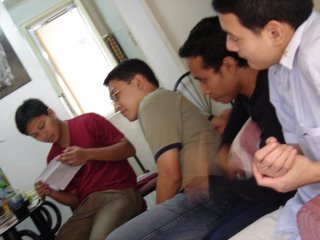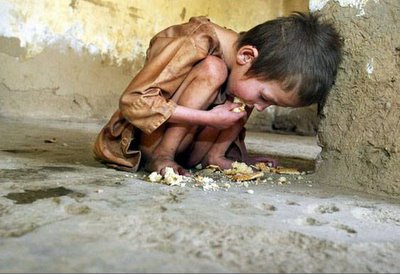
2 February 2006: The Feast of the Presentation of the Lord
Luke 2, 22-32: The Prophesy of Simeon and the Prediction of Sorrow
Our “Simeons” come upon us as unexpectedly as Mary’s. They come with equally harsh news and the inherent understanding that we will suffer in some way because of what has been announced to us. We don’t want the news any more that Mary did. We don’t deserve it, but our Simeons appear anyway and with them come struggle and suffering. Our Simeon prophecies usually enter into our lives abruptly, suddenly, and without warning. These announcements shock, surprise, remove us from our comfort zones, and blast our reality with grief, pain and turmoil.
Many of us experienced a “Simeon announcement” of some sort. In the midst of a life that is going reasonable well, suddenly the doctor’s prognosis of a serious illness, a letter telling of a job ending, the family member sharing a dark secret for years, the boyfriend/girlfriend declaring separation, the child insisting of a decision totally contradictory to a parent’s dream, a closing of a bank account. I have my own “Simeon announcement”: the radio announcement that my father died when I was in the hinterlands of Bukidnon, the phone call that my mom is in the hospital, the exam results when I failed.
Sometimes our “Simeons” come from an internal rather than an external source. Our intuition, dreams and consciences are voices that can give us messages of a future sorrow. Some have an inkling that a family member died. A friend of mine was uneasy one day, and couldn’t put her mind in the work she was doing. She felt something was wrong and she could not put a finger on it. Later during that day, her boyfriend had an accident. They said that when two people genuinely love each other, they feel what the other is feeling even without a word, even at a distance. All of these Simeon announcements in our lives come inevitably and there is no way for us to prepare ourselves for the sorrow it will bring.
What does this announcement do to us? I guess the these bad news come, we become aware of how fleeting our peace and happiness is, how fragile our security, and how vulnerable our life can be. When we are faced with the coming of sorrow, we know that we do not actually control life. It is normal that our initial reaction is fear, anger, disbelief, sadness, emptiness, etc. Often we are stunned and we could not believe it. When my father died, I do not know what I was feeling. I went through the funeral numb and “devoid of feeling”--- since I am the eldest, I instantly became the “father of the family”. During the entire wake, I was the manager; I was not the “son”. It took me weeks and months, before the reality sank, before I really began to mourn my father’s death.
In the film, Good Will Hunting, the wise therapist says to Bill, the young man who was hurting: “Bad things draw our attention to the good things we’ve overlooked.” When a life situation or event springs upon us and predicts future turmoil, what we value in life suddenly because sweeter, dearer, and precious to us. When I receive my first phone call that my mom was in the hospital, I suddenly yearned to spend more time with her and with brothers and sisters. The father of a close friend of mine who had a son who is autistic once said to me, that it was his son who made the family whole. When we become depressed and empty, we yearn for the joy we have assumed and taken for granted each day. When someone whom we love leaves us, we suddenly realize how much we love them, and we regret that we have not spent time we them. Thus the foretelling of a sorrow, the Simeons in our lives is a warning call: “Attend to it! Notice it! Look! Appreciate! Affirm!” Beyond the shocking news and the sorrowful consequence comes the invitation to be grateful for what we already have, and to treasure them. I believe when Mary stood at the foot of the cross sharing in Jesus’ suffering, it is the memory of being together that holds them close, not giving up hope, and standing stronger than ever.
The Presentation of the Lord then, is a celebration of the precious things we value: love and life! Because of His love for us, Jesus has given us new life. It is an acknowledgment that love and life comes from God. And thus we present and we dedicate all of ourselves to God. Let us value what God has given before it is too late. We are eternally grateful.
* My mom and I. When I was born, she told me that she presented me to the Lord. The doctor told her that her pregnancy was dangerous and difficult, so she dedicated me to God as she prayed to St. Gerard, the patron of pregnant women. My second name attests this. I am her firstborn.


















